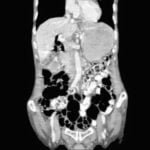Guard Your Heart: 10 Proven Strategies to Prevent a Heart Attack
The Global Burden of Heart Attacks
- Cardiovascular disease (CVD), including heart attacks, is the leading cause of death globally.
- According to the World Health Organization (WHO), over 17.9 million people die each year from CVD — accounting for 1 in every 3 deaths worldwide.
- Of these, more than 7.4 million deaths are due to coronary artery disease, the most common cause of heart attacks.
- Over 75% of these deaths occur in low- and middle-income countries, and many are preventable with early lifestyle changes and medical intervention.
Top Preventive Strategies to Reduce Your Risk of Heart Attack

1. Control High Blood Pressure
Why it matters: High blood pressure damages arteries and increases the risk of heart attack and stroke.
How to prevent:
- Reduce salt intake.
- Eat a heart-healthy diet (e.g., DASH or Mediterranean).
- Exercise regularly.
- Take antihypertensive medications as prescribed.
- Check your blood pressure at least once a year — or more frequently if at risk.
2. Lower Your Cholesterol Levels
Why it matters: Excess LDL (“bad”) cholesterol can form plaque in arteries, restricting blood flow to the heart.
How to prevent:
- Limit saturated fats and trans fats in your diet.
- Eat fibre-rich foods like oats, beans, fruits, and vegetables.
- Consider statins if recommended by your doctor.
- Get a full lipid profile check regularly.
3. Stop Smoking
Why it matters: Smoking narrows blood vessels, increases clot formation, and doubles your heart attack risk.
How to prevent:
- Quit smoking entirely — every cigarette damages your heart.
- Seek support through stop-smoking services, medications, or nicotine replacement therapy.
- Avoid second-hand smoke exposure as well.
4. Manage Diabetes Effectively
Why it matters: High blood sugar damages blood vessels and accelerates atherosclerosis (artery hardening).
How to prevent:
- Keep blood sugar within target range.
- Follow a diabetic-friendly, low-sugar diet.
- Stay physically active.
- Monitor HbA1c and take medications as prescribed.
5. Maintain a Healthy Weight
Why it matters: Obesity increases your risk of hypertension, diabetes, and high cholesterol — all key heart attack risk factors.
How to prevent:
- Aim for a Body Mass Index (BMI) between 18.5 and 24.9.
- Focus on gradual, sustainable weight loss.
- Limit processed foods, sugary drinks, and oversized portions.
6. Exercise Regularly
Why it matters: Physical activity strengthens the heart, lowers blood pressure, and improves cholesterol levels.
How to prevent:
- Aim for at least 150 minutes of moderate aerobic activity per week (e.g., brisk walking, cycling).
- Include resistance training twice a week.
- Avoid prolonged sitting — move regularly throughout the day.
7. Eat a Heart-Healthy Diet
Why it matters: Diet is a powerful modifiable factor that impacts nearly all heart risk factors.
How to prevent:
- Follow a Mediterranean-style diet rich in olive oil, vegetables, whole grains, legumes, nuts, and oily fish.
- Limit red and processed meats, refined carbs, added sugars, and salty snacks.
8. Limit or better avoid Alcohol Intake
Why it matters: Excessive alcohol raises blood pressure and contributes to weight gain and abnormal heart rhythms.
How to prevent:
- Avoid binge drinking.
- Consider cutting alcohol out entirely if advised by your healthcare provider.
9. Manage Stress
Why it matters: Chronic stress contributes to hypertension, unhealthy behaviours, and direct cardiac effects.
How to prevent:
- Use stress management techniques like mindfulness, yoga, deep breathing, or counselling.
- Stay socially connected and seek emotional support when needed.
- Maintain work-life balance and prioritise rest and recreation.
10. Attend Regular Health Check-Ups
Why it matters: Many risk factors are silent and only detected through routine screening.
How to prevent:
- Schedule annual health checks including blood pressure, cholesterol, blood sugar, and ECG if indicated.
- Follow up promptly on abnormal results.
- Discuss family history and personal risk profile with your GP.
⚠️ Recognise the Early Warning Signs of a Heart Attack
- Chest pain or discomfort (tightness, pressure, heaviness)
- Pain radiating to jaw, arm, neck, or back
- Shortness of breath
- Cold sweats, nausea, or dizziness
- Unusual fatigue (especially in women)
Act Fast – Time Saves Heart Muscle. Call emergency services immediately if symptoms occur.
Join the mailing list!
Get the latest articles delivered right to your inbox!

